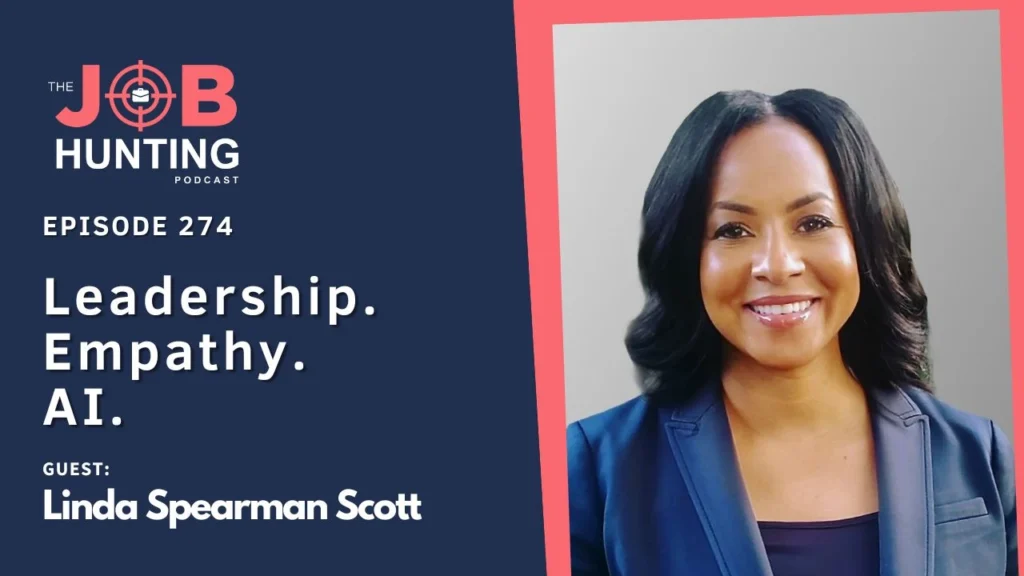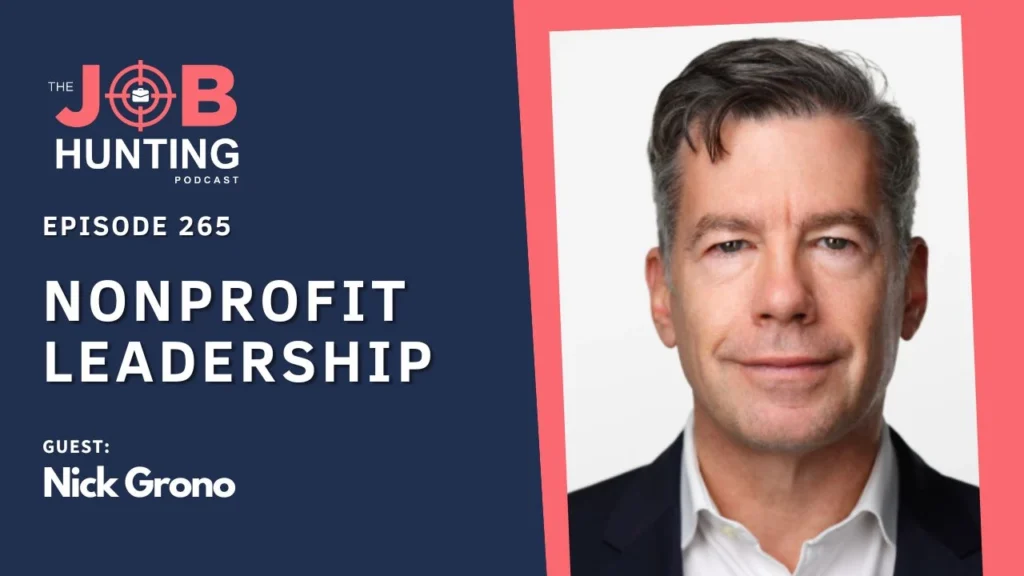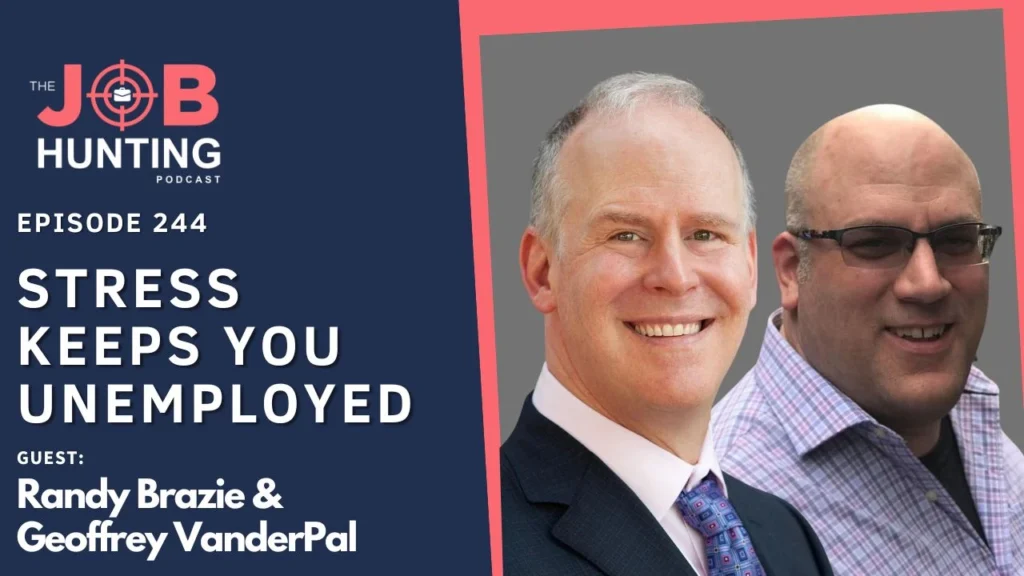Renata: Okay. What brought you to Silicon Valley? Was it work?
Bill Lennan: It’s a little weird. When I got out of college, the first job I had was as a mechanic. I got hooked on racing cars and started working on them. I lived in Hawaii and came here to go to racing school. Through a series of conversations, I ended up interviewing at a shop in Redwood City, and I spent seven years mechanicing on Ferraris, Lamborghinis, and vintage race cars.
Bill Lennan: And that was interesting. Then, I spent a few years in real estate because cars became boring. A friend asked if I would help him with sales for two people I knew who were building websites. So, they both wanted websites built. I don’t know if I was any good at sales because they were friends.
Bill Lennan: They said yes. Then I got a job in sales, but I wanted to learn what I was selling. And, um, I became a software engineer.
Bill Lennan: At the next company I went to, I think I was there for a year, something like that, and then they cratered. I went to another company and was there for four years, built my first team, learned more programming languages, built a profitable business, and then moved to another company, learned another language.
Bill Lennan: I ended up running another team. It’s been a fun ride.
Renata: Hmm. And the ride has led you to what you’re doing now. Tell us what you’re doing now.
Bill Lennan: So, 40 Percent Better is scratching an itch I started having when I got my first leadership position. I wanted some kind of a systematic approach to effective leadership for teams. As a first-time mid-level manager, I was really nervous because I had no idea how to help my team be successful.
Bill Lennan: I couldn’t find anything. I started doing a lot of research, and 10 years later, the next itch was that my teams were doing things people said were impossible. Over and over again, I had peers and executives coming to me and asking, “How did you do that? We don’t know how to do that. We couldn’t have done that, but your team just did it.”
Bill Lennan: What are you doing? And I didn’t know how to explain it. Fast forward to five years ago, my now partner interviewed me because she wanted to know what I was doing but asked a very different set of questions. At the end of the conversation, she said, “Okay, now I know exactly what you’re doing.” And I said, “Great, because I don’t. Tell me, please.”
Bill Lennan: She said you’re using a set of skills and mental models that we teach clinically to people to get them out of depression, anxiety, substance abuse, and PTSD. And I said, “Wow, now I’m super curious. I want to understand what it is that I’m doing.” So she did, and then she helped me to reverse engineer everything I was doing and to understand how to make it translatable to anybody else.
Bill Lennan: And so, 40 Percent Better really answers that question I had when I first started my career. And then the questions I started getting after 10 years, when people kept asking, “How are you doing that?” Now I know how to explain it.
Renata: Where does the 40 percent come from?
Bill Lennan: And talking to me and blah, blah, blah, new computer, everything else. At the end of the conversation, he said, “You know, one more thing, I’m sorry to say this, but I’m giving you the worst software team in the company.”
Bill Lennan: And they’ve been together for almost 10 years. We’ve tried everything to make them work better. Good luck. And I said, “Well, thank you. I appreciate that. I like a good challenge.” And I went off to work with my team. Six months later, I walk into the office one day, and he goes, “Man, hey, Bill, can you come in here and talk to me?”
Bill Lennan: And I said, “Of course, what’s going on?” And he said, “What have you been doing with your team?” I asked, “What do you mean?” He replied, “Your team is the best performing team in the company. In the last six months, they’ve improved their coding throughput by 40%. We’ve never been able to achieve that before.”
Bill Lennan: “What are you doing? You’ve got to teach me.” And I said, “I don’t know how to explain it. I take really good care of my teams. That’s all I can say.” He responded, “Well, when you figure it out, you have to teach me.” And that’s really what 40 Percent Better is all about.
Renata: When people came to you and said your team is achieving what we couldn’t, what exactly were they doing, Bill? Is it technical skills, innovation, or was there more cohesion in the group, or both?
Bill Lennan: It’s a little bit of all the above. At the most foundational level, what I was doing was creating an environment where the people on my team had a very high level of psychological safety. At the time, I didn’t realize that’s what I was doing.
Bill Lennan: I operated by a set of mental models that I assumed everybody else did too. I built a skill stack to support those mental models. At that point, I assumed everyone had the same mental models and skill stack as I did. What my partner helped me realize is that this is not the case.
Bill Lennan: Since then, as I’ve been developing this course and interviewing people, I’ve heard them express mental models that are the exact opposite of mine. Then I realized, “Oh, now I know why you couldn’t do it because I had a self-empowering belief and someone else had a self-limiting belief.”
Bill Lennan: Clearly, we’re going to go in very different directions. And so, when you give your team more psychological safety, multiple things happen. The first one is you get better contributions in team meetings about how to do things, how to move forward. People who had previously been shy and just followed along started contributing brilliant ideas they had never voiced before.
Bill Lennan: People take ownership because now I’m not the smartest one in the room. I want them to be the smartest people in the room. I’m trying very hard. Even if I’ve got an idea about how to solve a problem, I wait until the absolute end to even whisper it, because I’m really hoping that my idea is not the best idea and that someone else is going to have a better idea, or at least the same idea that I did.
Bill Lennan: And so, to collaborate. And when people take ownership, their productivity levels just jump through the roof. Part of the mental model that I have is that the starting point of being a team leader is being untrusted. On a trust scale that goes from negative to zero to positive, I assume that as a team lead, I start off negative and I have to work to build trust. Then as I create more trust with the team, they are willing to be more vulnerable because they know I’ve got their back. I’ve been feeding them what they need so now they feel a bit safer and are willing to say, “I’ve got this idea, and maybe it’s a little crazy, but I’m going to put it out there in front of the team.”
Bill Lennan: But now, I’m actually going to put it out there in front of the team.
Renata: Bill, what I think is fascinating is that what you mentioned earlier about not knowing how to explain your methods is very common, right? I work with clients who are looking for work, ranging from middle managers to senior managers and executives. When they are asked in an interview to describe their leadership style, they often don’t know how to articulate it because they lack the background that your partner has, which helps frame it in terms of management research science. They know how to manage, but they can’t explain it. Your intuition on how to manage teams was really high, whereas many people are experts in their fields and are promoted to leadership roles and then, unfortunately, fail miserably or become what we might call, colloquially, assholes—really bad at management.
Renata: They might be good people at heart; they just don’t know how to manage. So, what do you think was different about you that allowed you to perceive and act differently?
Bill Lennan: There are a couple of things. That’s a great question. The first one is I have to give a ton of credit to my dad. He worked in supply chain management in the U.S. military and always said his success was attributable 100% to the people on his teams. He was moving equipment that weighed thousands of pounds, and there was nothing he could do by himself, even if he wanted to.
Bill Lennan: So, everything that was successful happened because the team was working together. He repeatedly said, “My job is to make sure my team is successful. Anything I can do to help them be successful falls within the scope of my responsibilities.” That early on gave me some mental framing for how to think about leadership.
Bill Lennan: The second thing is, when I was in college, I worked at a very high-end restaurant. It was the only restaurant I ever worked at. I went in, interviewed, and they liked people with no experience. They were very clear on the responsibilities of every level within the organization, what you needed to do because everybody started at the ground level and what it took to move up within the organization.
Bill Lennan: A lot of what they talked about was the skills of the people ahead of you, making sure the people ahead of you were very successful, and that you got promoted because you were making other people successful.
Renata: What’s been said is crucial.
Bill Lennan: For me, I thought, well, if my job is to make my team successful and also to make other people in the company successful, then I can wrap my head around that really easily, even if they’re not people directly in my chain of command, for example.
Bill Lennan: So the first team that I got at the time that I got it, I was already going to other parts of the company and seeing where other people had struggles and trying to figure out how to help them out. Like, what is it that I can do that will make their lives easier? And clearly, the executives were happy about that.
Renata: Yeah, yeah, which leads me to another question for you, something we often see in management research. It’s about great leaders who provide a safe environment within their department or function, but outside that silo, the company culture isn’t great. Have you experienced situations where you were doing the best you could for your team, they felt safe working with you, but if they were moved to a different project or had to engage in cross-functional activities, they felt a bit burned by it? They weren’t excited to work outside your environment. How do you deal with that?
Bill Lennan: There are a few different answers to that question. The first answer is that a smart company, understanding the ROI of having happy employees, will hire someone like us to come in and train the middle managers and the first-level team leads because that’s really where you have the most impact.
Bill Lennan: And I don’t mean to demean those who have ‘chief,’ ‘vice,’ or ‘president’ in their title, but on a day-to-day basis, it’s the individual contributors who move the company forward. They make the sales, write the code, and put out marketing content. First-level managers, who run these teams, actually have the most power day-to-day to influence productivity. I didn’t invent this idea. The CEO who gave me my first team role said this to me one day as I was struggling with how to effectively ask for something for my team. He said, “Look, you’ve got way more power than I do on a daily basis.”
Bill Lennan: And I was like, “Wait, what? But you’re the C-guy.” And he said, “No, no, you’re the one actually making this happen. I’m layers insulated away. You’re right there at the ground level. Your perspective is better than mine. What do you want?” Getting that mentality across the whole company is really important, right?
Bill Lennan: My perspective is that it’s good ROI. Your company will make more money, which hopefully, if you’re in the C-suite, you care about when your people are operating really well. There’s a bunch of research about this already. And if you’re in a team and you’re happy because your leadership is effective, and then you move to a team that’s not working so well, what can you do to influence that team to help them operate better?
Bill Lennan: How can you start behaving like whatever you experienced in your first team and maybe even ask that manager, leader, or supervisor to mentor you so that you can start having an influence in the new team? I’ve had roles in teams where I wasn’t the guy in charge and I noticed, “Wow, these guys do not run this show very well.”
Bill Lennan: But I had the skills to figure out how to help as many people as I could operate more effectively in this environment, even though they didn’t work for me. That makes them happier.
Renata: Bill, the fact that you are in Silicon Valley, it’s such an interesting sandbox because I see what you’re saying in some organizations that have an amazing understanding of the value of their human resources. They do this in an authentic way, not just by offering superficial perks like massages or a ping pong table.
Renata: So, you’ve encountered these truly authentic leaders in the Valley. Yet, the dichotomy of Silicon Valley is that there are still quite well-known companies, which I won’t name, where the CEOs and founders extract performance from their people by stressing them out. This anxiety, which I know you’ve written about, seems to be part of their brand, part of how they believe they can get the best out of people, right?
Renata: When you were working, did you avoid those places, or did you end up in those environments and then decide, “I don’t belong here”? How do you figure out if you can change the culture or if it’s just better to leave? I ask this because many of my listeners are burnt out and worried about their work situation post-pandemic. Their lifestyles and ambitions have changed; they may have previously sought these high-powered, stressful environments, but now they’re saying, “No, this isn’t for me anymore.” Is it worth staying and trying to be an agent of change internally, or is it better to move on and find a better culture?
Bill Lennan: That’s a tough one. It’s going to be different for everyone. I’ve been at companies where I was 110 percent behind the mission, working ridiculous hours because I was driven by the company’s mission. If you were on my team and wanted to work as much as I did, great; if not, that was okay too. I never tried to guilt anyone into doing what I was doing; I was just doing my thing.
Bill Lennan: When I had kids, I suddenly realized I needed to manage my time efficiently to be with them. That was a forcing factor that actually helped me improve my productivity at work so I could leave the office. I used to turn down meetings if I felt they were unnecessary or if I wasn’t contributing to the conversation.
Bill Lennan: I’ve been at companies where I thought, “This is not the place for me,” and I started looking for roles at other companies where the work was interesting and aligned with whatever my desires were at the time. When the work is fun and exciting, and it pulls me in, there’s no burnout. Just like with my kids, no matter how much time I spend with them, I’m never burnt out because it’s all a win. That’s the same with work. When the company aligns with my interests, I thrive, no matter the stage.
Bill Lennan: And in my mind, leadership’s role is to facilitate that alignment as much as possible. I’ve been at big companies, and trying to be politically correct here, big companies aren’t for me. There are too many people worried about getting it wrong, and they move really slowly. I much prefer smaller companies that move faster.
Renata: Right, right. I get that. And I think knowing what scale suits your way of working is so important, isn’t it? That’s really something I like to work on with my clients as well. One thing that you mentioned that I really wanted to discuss, because this is the Job Hunting Podcast after all—people listen because they’re trying to achieve something. They often feel anxiety about their career status quo or the next steps in their career advancement. You wrote recently that anxiety only shows up when people don’t have a trusted system.
Renata: And I really related to that. I remember feeling quite anxious in my work or in my situation when I didn’t trust not just the system but my own instincts in that environment. Could you expand on that link between anxiety and trust? I think it’s quite profound.
Bill Lennan: Yes, this ties into the work my partner does; she’s a clinician, an occupational therapist by trade, and has been deeply involved in mental health for many years at a local, award-winning hospital program. They deal with people at the very emergency end of the mental health spectrum.
Bill Lennan: There’s a lot of research around anxiety, depression, PTSD, and other mental health issues. It’s hard for me to say this out loud because it can be triggering for some people, but for many, a lack of knowledge places them in that state. There’s decades of clinical research showing that more knowledge about what’s going on in your body can change your behavior, making old anxieties part of history.
Bill Lennan: For a simple example, you live in Australia, right? There, many people are in the water often and rely on a great lifeguard system. I grew up mostly on islands, lived in Hawaii for many years, and for me, the water is a big playground. I have a mental model of the water as a playground, a view I’ve had since I was five or six, and it still exists today. My kids, I’ve taught them the same.
Bill Lennan: I know people terrified of the water, who have a lot of anxiety about it. It’s the same water I think of as a playground, but for them, they don’t want to go anywhere near it. They don’t have a system to operate in the water that allows them to feel safe and relaxed. They don’t have the mental model.
Bill Lennan: My partner used to help 15 to 25-year-olds move from self-harm to being really happy and delighted about life. A lot of the process was teaching them how to manage their brain chemistry, showing them all the knobs and levers they have biologically to manage their own brain chemistry, and what they can do to negatively impact their brain chemistry. Knowing this, if you recognize you’re going down a path that could trash your brain chemistry, which makes it super easy to become anxious or depressed, you might realize, “Wait a minute. I need sleep. I haven’t slept well in three days. Maybe that’s why I feel like crying all the time.”
Bill Lennan: And so, now you know what to do because you’ve got control of yourself. You’ve got a system you can leverage, right? In the job search, and I’ve done job searches before, you know, because that’s how life goes, right? We get laid off or we decide we don’t want to work anymore and we quit. Having a system and a process, and I don’t necessarily know which of the knobs and levers in the job search is going to get me an interview, but I know that one of them will. Right? So I’m networking, I’m talking to my friends, I’m connecting with people on LinkedIn who work at companies that look interesting, I’m applying to jobs wherever I happen to come across them. And I trust that that system will work, and every day I put in whatever amount of effort I’ve decided I need to do, day after day after day. And I know from history that I will get results, right? It’s kind of like if I want to get stronger, I’m going to go to the gym and lift weights.
Bill Lennan: And I might not notice any gains for a while. And then one day I’m like, “Holy cow, my max just went up by 20 pounds. Great.” It’s being willing to invest yourself in that system and not being impatient about the results. And I think that impatience is where people falter. They think, “I’ve applied to 20 jobs. Someone should hire me right now.” But 20 may be a bit low. If you don’t know what the scale number is and you’re not tracking it and you’re not actually doing a statistical comparison to other people, then you don’t really know.
Renata: I’d love to add a story to that water analogy you just mentioned, going back to the anxiety and the trust system. You’re right about Australians in the water. I’m actually originally from Brazil, so I feel safe in the water. We have quite a lot of sharks here, and that really scared me at the beginning and made me quite anxious.
Renata: I have had shark encounters on four or five different occasions here. And what I think has happened over time is that my level of anxiety has decreased to the point where now I don’t need to tell everybody I’ve seen a shark. It’s not a big deal anymore. I’m not scared. I mean, if it was a great white, of course, it would be different.
Renata: But just a few weeks ago, I was swimming at my favorite beach and there was a bottom feeder shark, so it’s one of those that just stay near the sand and they’re not dangerous at all. And I just swam by it thinking, “Oh, there you are.” Whereas, if this was twenty years ago when I first moved here, I would have made an amazing song and dance about it.
Renata: Now, why is this important in the context of our listeners? If you have never gone to a job interview, or a high-stakes job interview, you will be scared stiff of it. But if you practice for it, or the more you do it—either by mimicking the same environment, which is something that I try to do with my clients when we’re doing preparation, or by just going to interviews and knowing that if you don’t get a job, it’s a great learning experience—you’re getting used to the adrenaline and the cortisol. That’s your big white shark right there. So that anxiety that comes, you might be able to get used to it and manage it and decrease it, and you might gain more trust in the whole process of working with a team, working with a new manager, going for job interviews, whatever it is that you have to do in your corporate career. So that’s my story.
Bill Lennan: Perfect. What you’re talking about there is the practice effect, right? It’s just practicing. It’s like juggling. The first time you get three hacky sacks and you try to juggle, they all end up on the floor. But as you learn the technique and you practice, one day you’re juggling, and you think, “Holy cow, I can do this.”
Bill Lennan: One of my mental hacks when I go to interviews is to always think of it as a practice run. I never think of it as a serious high-stress interview. I just think, “Oh, this is another practice run. I’m just practicing for the real thing, which will come someday.” It decreases my stress level right off the bat and allows me to be a little more playful in how I approach it. Because I’m not taking it so seriously, I can take risks.
Renata: That’s an interesting take. I guess it makes you feel more comfortable in that environment. Yeah.
Renata: I like that. I think as long as you convey the right level of energy. Does that make sense? I don’t want people to listen to this and think, “Oh, I’ll be nonchalant about it and just sort of play it cool.” That’s not really the way to engage with it.
Bill Lennan: Yeah, for me, it’s a way to hack my own head just to have myself be relaxed in the context. And you know, so far, it’s worked pretty well.
Renata: With the work that you do, I’m interested to know. Post-pandemic, with the hybrid work environment, people in Silicon Valley, as far as I understand, have been able to have some flexibility, work from home, that sort of thing. Some big companies didn’t allow that before but now they do, like Facebook, for example. What does that mean for you, consulting with companies trying to make leaders more effective in an async, kind of virtual, online environment? Does it change the way that you lead people because they’re working remotely?
Bill Lennan: So, I started working with remote teams when it was still very new. I’ve been doing this since 2000. I got in very early and had teams all over the planet. So, I was used to that operation early on. Like when I was at Google, I had people all over the world. And I had to figure out how to operate with them, how to get meeting times that work when they’re 12 time zones away. Okay, great, how do we find a time that works?
Bill Lennan: The things that I noticed is that it’s the same process. Practices and processes are key. One of the things that I do is I hold weekly one-on-ones with everybody on my team, where I want to hear from them about what’s going on. It’s not about me being able to tell them anything; I just want to be a pair of ears.
Bill Lennan: I don’t really care if they’re here in front of me or if they’re in Europe somewhere, or in Australia for that matter. As long as we can find 15 minutes and I can say, “Renata, what’s going on in your world? What do you want? What do you need from me to help you advance your career?” Because at the end of the day, I see my job as being about preparing you for wherever it is you want to go next, right? And giving you those advancement opportunities to build yourself, your skills, your leadership ability, whatever it is.
Bill Lennan: And so, as long as I’m doing that consistently, going back to earlier, I’m building trust, right? I’m not telling you what to do. I’m asking you, “How can I help you?” I’ve done this with teams literally all over the place. I’ve been practicing agile software development for a very long time, so we have daily standups, and depending on where everybody is, the time for that can change. You know, I’ve got people on the team who are getting their kids to school. We’re not doing the meeting until after they get home, with a buffer for a cup of coffee. The team appreciates all that.
Bill Lennan: It works really easily. I think not enough team leads focus on building their people because they don’t have that as a mental model. So I always think about how I can help you get ahead in your career. You could say, “I’m totally happy where I’m at right now. I don’t want to move ahead.” And that’s perfect. Right? And I’m like, “Cool. If you change your mind, let me know.” If you’re like, “Oh, my kids are struggling with school. Somehow I need to change my schedule,” I’m like, “Okay, fine. How do we make it work?” It’s very rare that I’ve had anybody take advantage of that. And it’s because the general consensus in the team is that we’re being well taken care of, we need to reciprocate, right?
Bill Lennan: And everybody has ownership of the stuff they’re building. And so they’re very aligned and they’re very productive. Yep.
Renata: Yeah, no, I hear you, and it made me think of the first time I was given a leadership position in Australia because I moved here in my late twenties, studied, got a job, got another job, and then I was promoted from being part of a team to managing that team. Nothing is more awkward than that.
Renata: I don’t know if you’ve been in that situation. You’re there, you’re part of the team, they’re sharing all the gossip and complaining about the manager. All of a sudden, you’re the manager. And it’s so awkward. And I came up with this question that I had with my new team—my former colleagues, my new team—in their one-on-ones.
Renata: And I don’t know if anyone knows where I got this idea from, please let me know. But I’ll take it as my own for now because it’s so original and I haven’t heard it from anywhere else. But I remember telling them, “Look, I already knew all their secrets, right? So now I am your manager and I can help you move in, move up, or move out. And I want to help you.” And I said that because I knew some of them were so unhappy and some of them, very ambitious, and all this was just sort of floating around. So I gave them three options and some moved out. I was their reference and so forth. Some moved up, some moved in.
Renata: And I like that. I think you’re right. I think it’s not part of the leader’s mental models, but sometimes it’s not part of their KPIs either, like even when they’re onboarded into a role, they’re not even told what to do in terms of people and capability, professional development for their team.
Renata: It’s all an afterthought. It’s not really something that is discussed. It wasn’t discussed in my own onboarding ever, like in all of my roles, even when I was managing quite large teams. So that’s my experience. What do you think could be some of the signs for people starting new jobs? You know, people are listening to this podcast, they get a new job.
Renata: What would be the subtle signs of a healthy versus an unhealthy leader and sort of workplace dynamics that they should be wary of when they start a new job?
Bill Lennan: So, I think about it in the interview process.
Bill Lennan: I approach interviews a little differently. I ask a lot of questions because I really want to understand what I’m getting into and what the success metrics are that they’re looking for. Sometimes they have answers, and sometimes they don’t, which is okay. I just want to figure out the game I’m going to be playing. That helps me understand their stance on career advancement because I get to ask questions like, “Oh, how long have you been here? What has your role been? How have your responsibilities changed over time? What’s the process for supporting knowledge growth? If I want to get trained in something new because I see how it’ll really help the team, what’s the process?”
Bill Lennan: That helps me understand their approaches. Often, what I hear from executives is, “Oh my God, we love to train people, but nobody ever asks.” That’s an interesting data point for me, and if they say that, then I know, okay, great. If there’s something I want, I can go and ask for it because they’ve already said that’s okay, but I need to frame it so it’s a win for them. I need to be able to talk about why, if I want this training or a new computer, or to do this stuff for my team, why there’s a net positive ROI for the company.
Bill Lennan: Because it seems to me that the farther you go up in the org chart, the more money is a thing that your KPIs are tied to. “Oh, if I go do this course and it’s going to be $600 for me to take this course, but it’s going to allow our team to save three hours a week,” that’s a net positive in a very short amount of time. And so, I try to think about positioning things in that way. Usually, it works.
Renata: Yeah, you’re right. That’s such a great opportunity. Sometimes people underestimate how much you can learn from paying really good attention to the recruitment process, asking the right questions. Candidates sometimes are so excited about it all that they overlook it, but it can tell you a lot.
Renata: Bill, I have coaching clients in all four time zones in the United States, considering I’m in Australia that is hard to say the least, but what I wanted to know from you—because you’re there and because you’re talking to leaders and talking to companies and observing the job market…
Renata: My experience, just in comparison with the job market in Australia or in other parts of the world where I have clients as well, is that in the US, there are many more applicants per job than in Australia, right? So, a popular high-demand job in Australia might have like 50 applications listed on LinkedIn Jobs. If I have a client in New York, that would be 300, right? That is very complicated. How do managers sift through those applications and make decisions?
Bill Lennan: This is going to make some people really annoyed. On LinkedIn, you see there are this many applications, but if you look in the applicant tracking system, there’s actually a thousand. The applicant has about six seconds to prevent the first level screener from saying no. You’ve got to be able to have some kind of content that will get somebody’s attention.
Bill Lennan: If you’re in the big pool, being a referral from somebody inside the company automatically raises your stature, which is why I’m constantly networking and talking to people and getting that warm introduction.
Bill Lennan: And, moving and being able to have a conversation with someone in a way that’s valuable to them. Gary Vaynerchuk always talks about giving 60%, getting 40%, and knowing that 40% is plenty. So, when I’m networking, I’m always thinking, “What can I do for them? What do I know that they don’t? Is there someone I can introduce them to right off the bat?” Maybe they have a technical problem and I know someone who can help. I try to be valuable before I’m even in the interview process, which means I spend a lot of time thinking about how to network effectively. I reach out to people on LinkedIn and ask friends for introductions.
Bill Lennan: This moves me into a much smaller list. I want to go from the thousand in the applicant tracking system down to the 50, to get into the Australian numbers for a referral. If it’s someplace like Google, where you add another zero to the end of that number, you’ve got to know someone inside the company who can hand-walk your resume to the right person. Networking is key here. Or another part of this is, if your resume shows that you’ve done a bunch of interesting and valuable things that matter to the company, then that will elevate you. That’s how I got into Google. My resume was diverse and that caught the hiring manager’s attention. The breadth of experiences I had was unusual and that got me in the door.
Renata: Yeah, I love that because some people tend to look at their careers and only see the negatives. Someone may have a very diverse and multifaceted career and think, “Oh, I haven’t niched down enough,” and in some situations that may be a challenge, but in others, there are opportunities. You just need to seek them out. When I coach clients, we talk a lot about referrals. I have a podcast where I discuss step-by-step how recruitment works and how important referrals are. I’ll mention the link below if anyone wants to know more about that.
Renata: Another funny story is that I used to travel a lot for work and when you travel alone, you often sit at cafes and just listen to people talking. The most fascinating conversations I’ve overheard were always in San Francisco or Palo Alto. I remember being in London or other cities around the world, but the conversations about careers, work issues, solutions for coding problems or innovation, or leadership challenges were most intriguing there.
Renata: We need to get back to that. If some of us have stopped because of lockdowns and pandemics, then we need to find a way back. Just speaking it out loud is already fascinating, right? But hearing what others can contribute to your brainstorm—that’s invaluable.
Bill Lennan: Absolutely. If anyone’s here in the Bay Area, there’s a networking group called 106 Miles. They meet once or twice a month and have been around for more than ten years. You can find them on Meetup dot com.
Renata: Okay, that’s great advice. For anyone, anywhere in the world, just go to Meetup dot com. But I’ll find a link and—
Bill Lennan: They meet in Palo Alto and San Francisco, historically the two places where they host meetings once or twice a month. It’s an amazingly eclectic group of people. Another group here is called Scrappy Startup, and they host even more networking events, like four a month. Again, super eclectic, very broad membership in there.
Renata: Awesome. Bill, it has been really lovely talking to you. The 40 percent concept is fascinating—focusing on leadership from the ground up, something you’ve noticed and developed intuitively. You were very lucky to find a partner to help you develop your thought leadership. Well done. And let’s keep in touch. If you have more content that you think would be beneficial for the listeners of this podcast, definitely come back to us. Do you have any further pearls of wisdom for people looking for work as they listen to this?
Bill Lennan: The thing that I notice is that people tend to engage in negative mental filtering. We pattern-match or have confirmation bias towards negative news, not the positive. It’s a super common human behavior. Knowing this, if we can consciously look for the good news—like, five of my friends just got jobs, or I met three new people yesterday for networking—and really focus on these little wins rather than getting stuck on the negative. Because there are always a bunch of little wins available if we put the work in to make them happen. For me, it’s always about what work I can do that will get me those little wins, and those little wins stack up over time, right? If you’re 1 percent better every day, that’s a lot when you look at it over a period of time. So, I just focus a lot on the positives, and I don’t get as anxious or depressed.
Renata: Yeah, no, you’re absolutely right. It’s a good message to end this episode on. Listeners will appreciate that. Bill, thank you so much once again. It’s been awesome talking to you.








